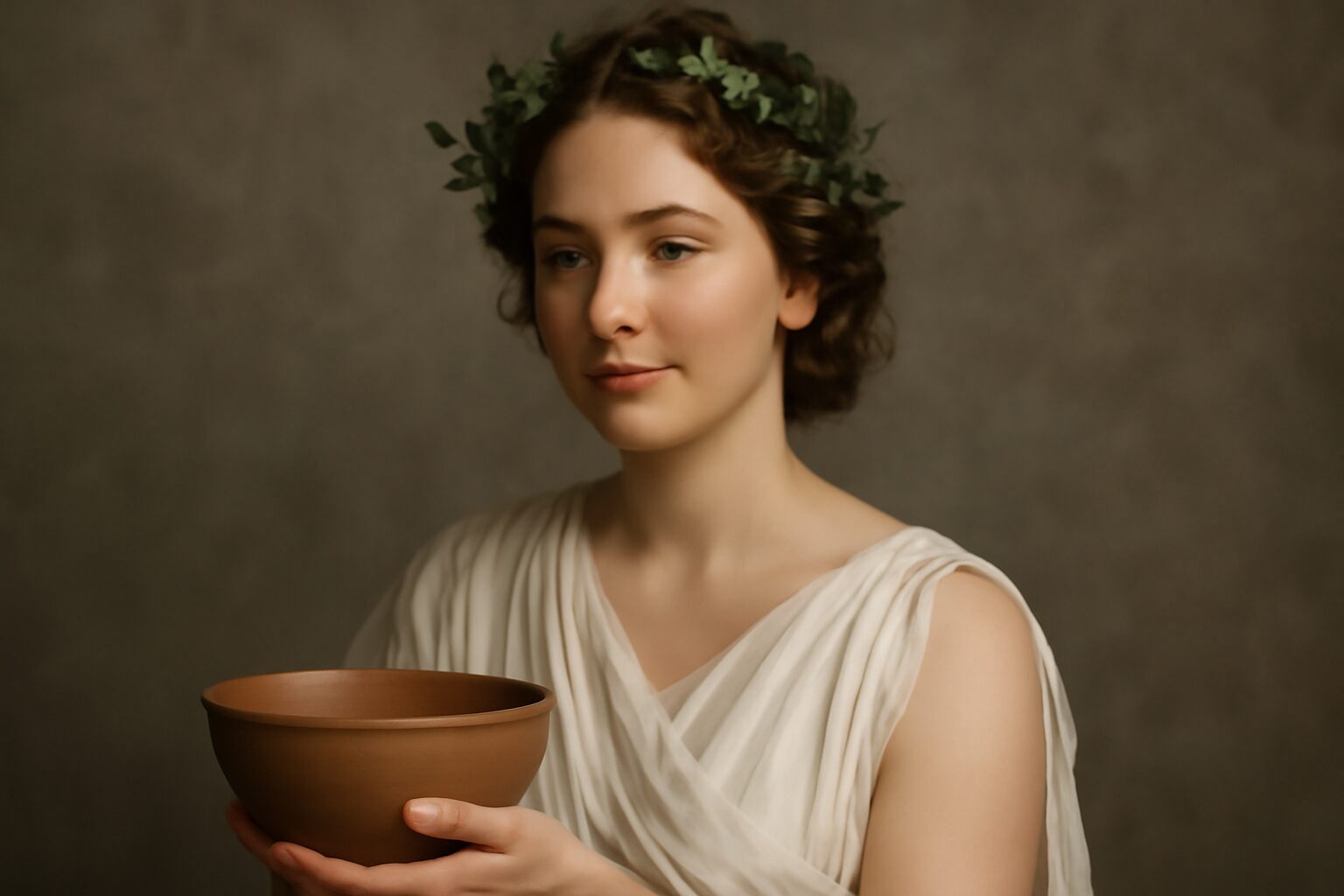Philophrosyne: The Spirit of Welcome and Kindness
In the vast pantheon of Greek deities, Philophrosyne (Φιλοφροσύνη) stands out as a lesser-known but deeply meaningful figure. She personifies welcome, friendliness, and kindness, embodying the warmth and hospitality that the ancient Greeks valued highly. Though not as prominent as the Olympian gods, Philophrosyne played a vital role in daily life, ensuring harmony in social interactions.
Origins and Family
Philophrosyne was one of the younger Charites (Graces), daughters of Zeus and the Oceanid Eurynome. Alongside her sisters—Eupheme (praise), Euthenia (prosperity), and Eucleia (good repute)—she represented virtues that fostered community and goodwill. Her name itself translates to "friendly-minded" or "kindly," reflecting her benevolent nature.
Role and Significance
Unlike war gods or thunder-wielding deities, Philophrosyne's influence was subtle yet essential. She presided over gracious hospitality, ensuring that guests were treated with respect and warmth. In a culture where xenia (guest-friendship) was sacred, her presence was invoked during feasts, gatherings, and diplomatic encounters to prevent discord and encourage mutual goodwill.
Her spirit was especially important in ancient Greek homes, where hosts sought her blessing to create an atmosphere of ease and generosity. She was also associated with reconciliation, smoothing over disputes and fostering forgiveness among friends and family.
Mythology and Worship
Though no major myths center on Philophrosyne, she appears in hymns and poetic fragments celebrating the Charites. Writers like Hesiod and Pindar referenced her as a divine force that made social bonds stronger. Unlike gods with grand temples, she was honored in small, personal rituals—libations poured before meals or prayers spoken at the threshold to welcome visitors.
Her legacy endures in the Greek ideal of philoxenia (love for strangers), a concept that still influences modern notions of hospitality. In a world where gods often represented power and vengeance, Philophrosyne reminded mortals of the quiet strength in kindness.
Alternative Names for Philophrosyne
God Name: Philophrosyne (Greek)
The primary Greek name of the deity, meaning 'friendliness' or 'kindness,' often associated with hospitality and welcoming gestures.
God Name: Clementia (Roman)
A Roman deity embodying mercy and gentleness, sharing similar attributes with Philophrosyne, though not a direct counterpart.
God Name: Eudaimonia (Greek)
An alternative Greek concept sometimes linked to Philophrosyne, representing flourishing or happiness, though not a direct name for the deity.
God Name: Charis (Greek)
One of the Graces in Greek mythology, embodying charm and grace, sharing thematic similarities with Philophrosyne's benevolent nature.
Tales about Philophrosyne
Philophrosyne and the Healing of Aceso
In the divine halls of Olympus, Aceso, the goddess of the healing process, was tending to a wounded hero whose injuries resisted even her skilled hands. The hero’s spirit was broken, and his pain seemed to deepen with each attempt at remedy. Sensing the growing despair, Philophrosyne, the spirit of welcome and kindness, approached with a gentle smile. She knelt beside the hero, offering words of comfort and a warm presence that eased his tension. Her welcoming aura softened his heart, allowing Aceso’s remedies to take full effect. Together, they demonstrated that true healing blends not only medicine but also the warmth of a gracious spirit.
The Lesson of Combined Grace
This encounter reminded all that recovery thrives where Philophrosyne's kindness opens the door to Aceso's art, making even the most stubborn wounds yield to compassion.
Philophrosyne and the Harmony of Harmonia
When discord threatened to unravel the bonds at a grand celestial feast, Harmonia, goddess of harmony and concord, found her efforts to restore balance were met with stubborn resistance. The divine guests, prideful and set in their views, refused to yield. It was then that Philophrosyne glided into the gathering, her very presence a balm of hospitality and goodwill. She moved among them, offering genuine compliments and fostering an atmosphere of mutual respect. Her welcoming nature disarmed tensions, allowing Harmonia’s influence to weave peace back into their interactions. The feast concluded not with strife, but with laughter and renewed fellowship.
A Union of Welcoming and Concord
This story illustrates how Philophrosyne's gift of welcome empowers Harmonia's harmony, proving that kindness is the key to unity.
Frequently Asked Questions
Who is Philophrosyne in Greek mythology?
Philophrosyne is a lesser-known spirit (daimon) in Greek mythology who personifies welcome, friendliness, and kindness. She represents the concept of warm hospitality and graciousness towards guests and strangers.
What does the name Philophrosyne mean?
The name Philophrosyne comes from ancient Greek words meaning 'friendly-minded' or 'kindly.' It reflects her role as the embodiment of welcoming behavior and positive social interactions.
Why is Philophrosyne important in Greek culture?
Philophrosyne was important because hospitality (xenia) was a sacred duty in ancient Greek society. She represented the ideal gracious host and the positive social bonds created through kindness and welcoming behavior.
How does the concept of Philophrosyne apply today?
The idea of Philophrosyne remains relevant as it represents universal values of kindness, hospitality, and creating welcoming environments - principles that still form the foundation of positive social interactions in modern times.
Is Philophrosyne related to any major Greek gods?
Philophrosyne is sometimes associated with larger concepts like Harmony (Harmonia) or the Graces (Charites), but she isn't directly connected to major Olympian gods. She's more of an abstract personification of social virtues.













